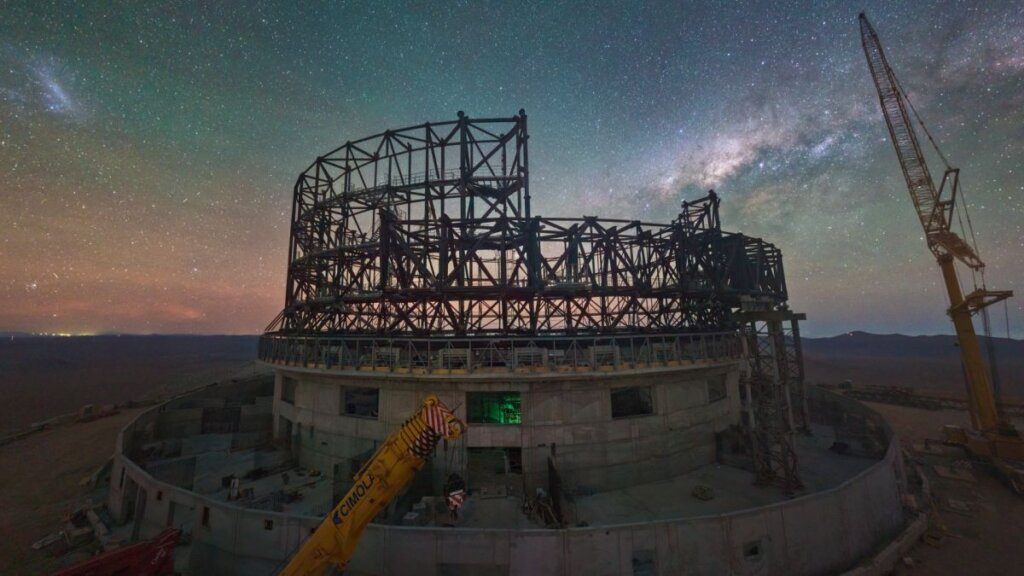Newly released stunning images show that the Extremely Large Telescope is now halfway complete.
The images taken in June show the structure of the revolutionary ground-based Extremely Large Telescope (ELT) currently under construction atop the mountain Cerro Armazones located in Northern Chile’s Atacama Desert in extraordinary detail.
When complete, the ELT will boast a 128-foot (39-meter) wide primary mirror that will represent the largest eye on the universe from the surface of Earth, able to view the cosmos in both visible and infrared light.
Related: The 10 biggest telescopes on Earth
The ground-breaking telescope has been under construction since 2014, and its development is proceeding at an impressive pace with its operators, the European Southern Observatory (ESO), remarking in a statement that its appearance changes noticeably on a day-to-day basis. Eventually, the steel skeleton seen in the new images will be covered, and the structure will be capped with a characteristic dome.
“The ELT is the largest of the next generation of ground-based optical and near-infrared telescopes and the one that is most advanced in its construction,” ESO Director General Xavier Barcons said in the ESO statement.
The second half of the construction of the ELT is expected to continue at an even more rapid pace than the construction of its first half. This period not only included meticulous and painstaking detail but was also impacted by the COVID-19 pandemic, which shut down the construction site for several months.
From the groundbreaking ceremony in 2014 to the halfway completed point, nine years have passed, but the remaining 50% of the ELT is expected to be put together in just five years. The telescope is expected to open its eye to the cosmos in 2028, delivering its first scientific results in the same year.
The flurry of activity needed to complete the ELT isn’t just underway in the desert of Northern Chile, however. Companies in Europe are currently hard at work building the telescope’s mirrors and other components.
When completed, the primary mirror of the ELT will consist of five separate mirrors, including a giant main mirror (M1) made up of 798 hexagonal segments. Around 70% of the supports needed for these segments are already completed.
Mirrors 2 and 3 (M2 and M3) are also well underway when these elements are cast and are currently being polished. All of the six thin petals that make up the flexible fourth mirror (M4) of the ELT’s five-mirror design have been finalized and placed into their structural unit. M4 is a particularly impressive piece of telescope technology, capable of adapting its shape a thousand times a second to correct for distortions caused by air turbulence.
The ELT’s other science instruments, including its control system and the equipment needed to assemble and commission the telescope, are also well into their production or development stages. Additionally, the support infrastructure that will be needed by the ELT is now in place at or near Cerro Armazones.
“Reaching 50% completion is no small feat, given the challenges inherent to large, complex projects, and it was only possible thanks to the commitment of everyone at ESO, the continued support of the ESO Member States, and the engagement of our partners in industry and instrument consortia,” Barcons concluded. “I am extremely proud that the ELT has reached this milestone.”

